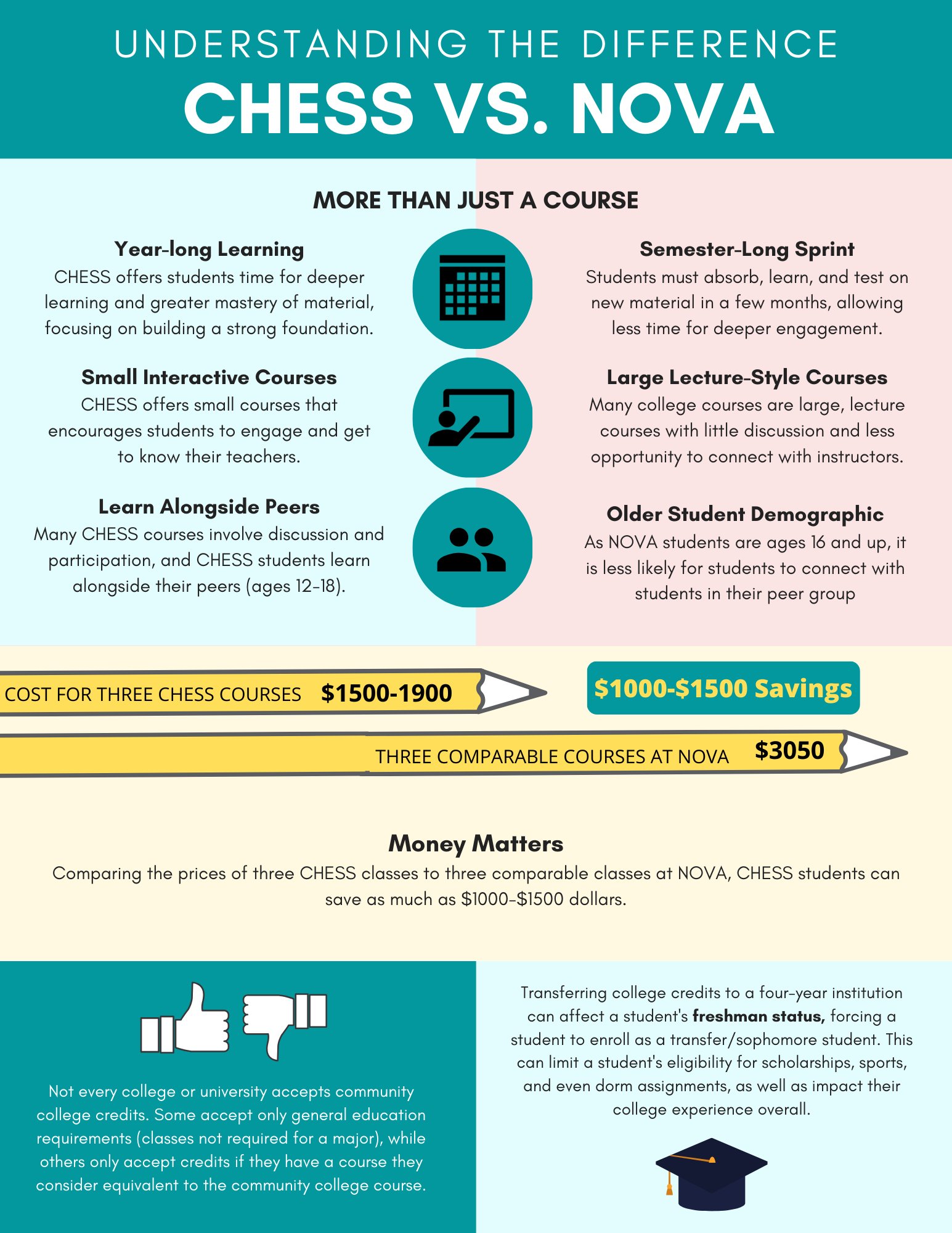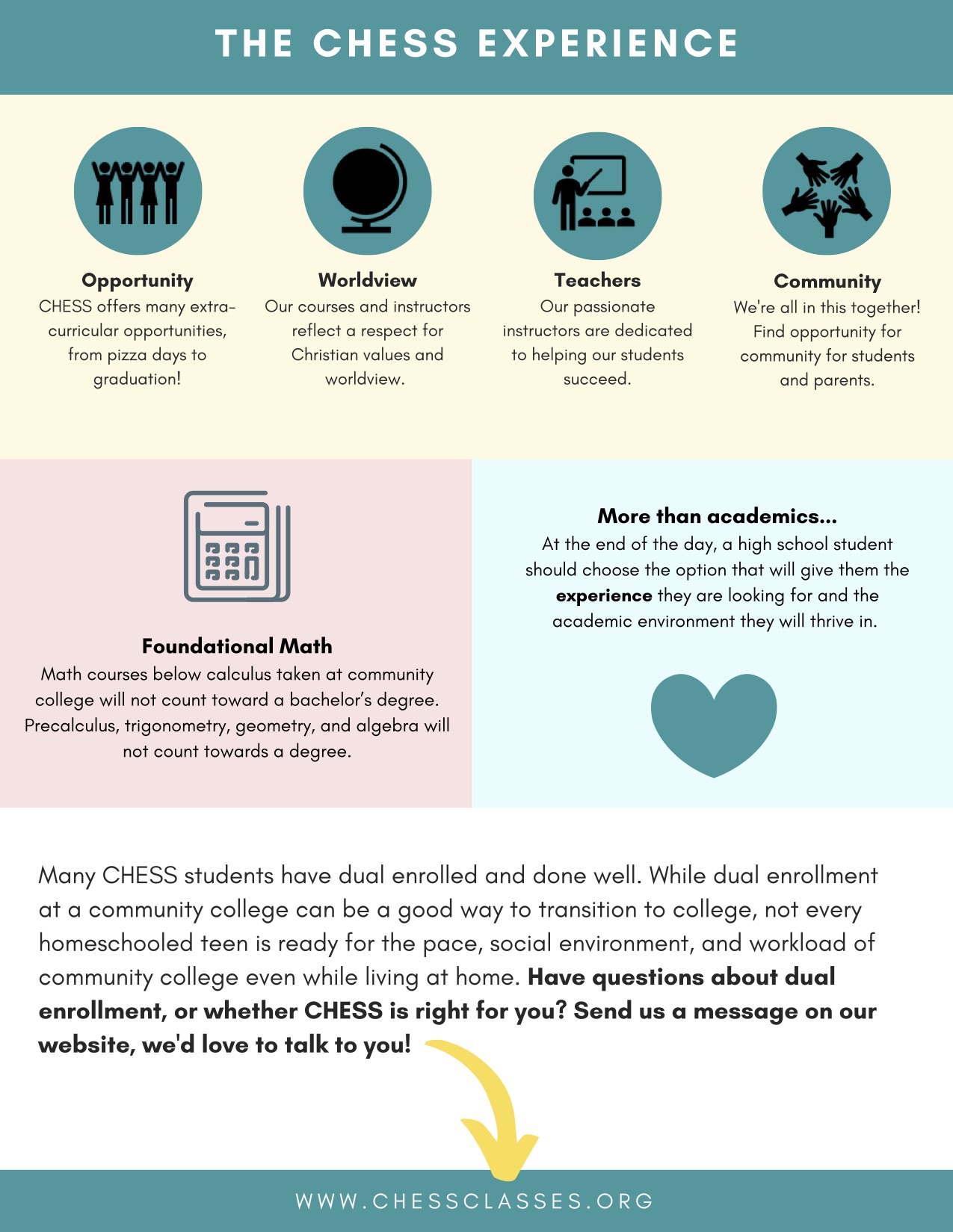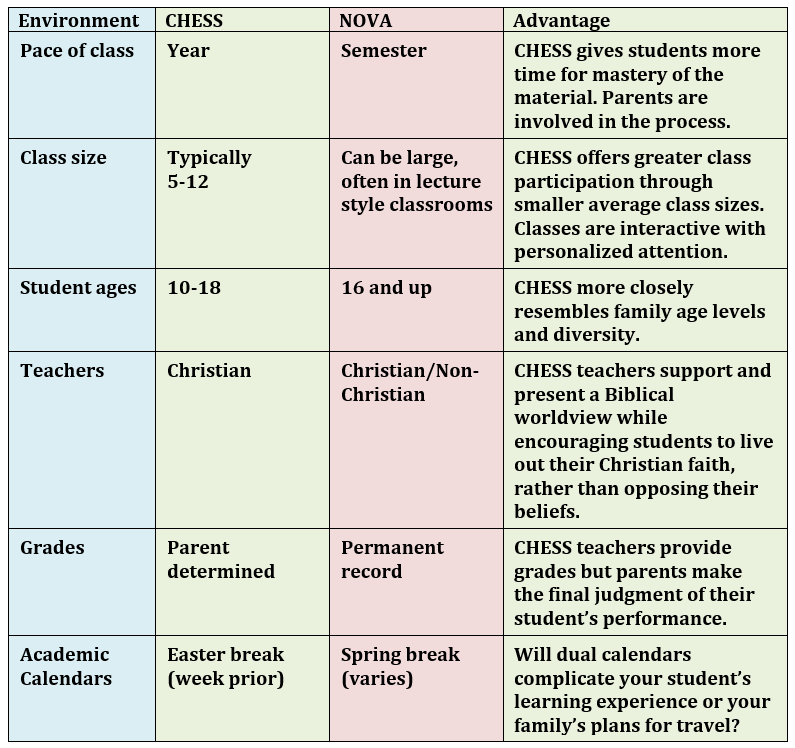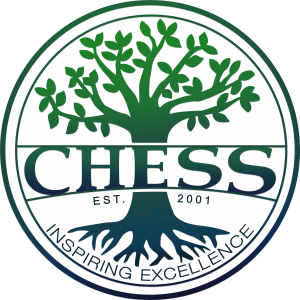Infographic


Benefits of Attending CHESS over Community College.
Saving money is important, but not the only reason.
Homeschooling parents of older teens have many options as they consider what kind of high school experience to provide for their students. Should they continue with high school classes or enroll their students at a local community college through dual enrollment?
When high school students dual enroll, they can simultaneously earn high school and college credit. When considering costs, dual enrollment appears attractive, but learning how dual enrollment works is important, and understanding the differences in the academic, social and spiritual environment will help in making an informed decision.
Money matters
We all like to save money. Dual enrollment sounds like a great way to whittle down college costs. But does it? When comparing prices, consider:
- Course Fees
- Book fees
- Parking costs, including parking permits
Also consider if your student’s courses will be accepted, and how dual enrollment credits may affect their university status.
Dual enrollment challenges
Dual enrollment allows high school students (public, private, or homeschooled) to earn college credit and high school credit simultaneously. In that sense, dual enrollment can save a family on future tuition, but it’s more complicated than it sounds. Many homeschooling families have learned that careful planning on a student-by-student basis is required.
Here are three questions that should be considered when taking dual enrollment classes.
Will my student’s credits be accepted?
Not every college or university accepts community college credits. Some accept only general education requirements, while others only accept credits if they have a course they consider equivalent to the community college course. Some will not accept credits in the student’s major.
Every college that will accept credits from a Virginia community college has its own “Articulation Agreement” with the community college, outlining what credits it will accept. Students should identify universities they hope to attend and study those universities’ policies on accepting transfer credits before they enroll so that they don’t spend time and money on courses that will not be accepted.
In addition, students should consider their future major. They should study the policy on accepting transfer credits for the department they hope to major in. For example, one homeschooled student did not investigate transferring credits, and took several engineering classes at NVCC, then had to repeat them at his four-year college.
Will my student take calculus/above math courses?
Math courses below calculus taken at community college will not count toward a bachelor’s degree. Precalculus, trigonometry, geometry, and algebra will not count towards a degree.
Will dual enrollment endanger my student’s freshman status?
Transferring college credits to a four-year institution can affect your freshman status. This can limit your eligibility for scholarships, sports, and perhaps even dorm assignments. Consider whether your teen is ready to transfer in as a sophomore or junior. Their peer group will be a few years older (socially and emotionally), too.
CHESS offers a very different experience from community college
CHESS not only offers financial advantages, but also offers a significant academic, social and spiritual experience. One overall difference when homeschooling through CHESS is a homeschool friendly environment compared to the typical community college experience.
Use the comparison below to help your family determine which environment is best suited for your student.

While dual enrollment at a community college can be a good way to transition to college, considering your ultimate goal for your student’s high school experience is important.
The bottom line: CHESS saves you money, and provides a rich high school experience for your students.
